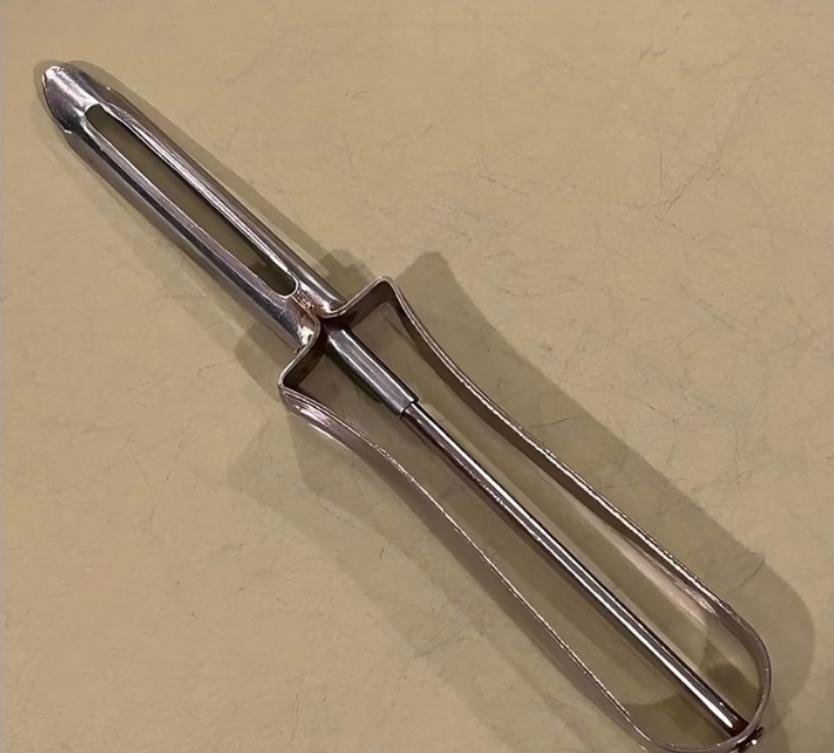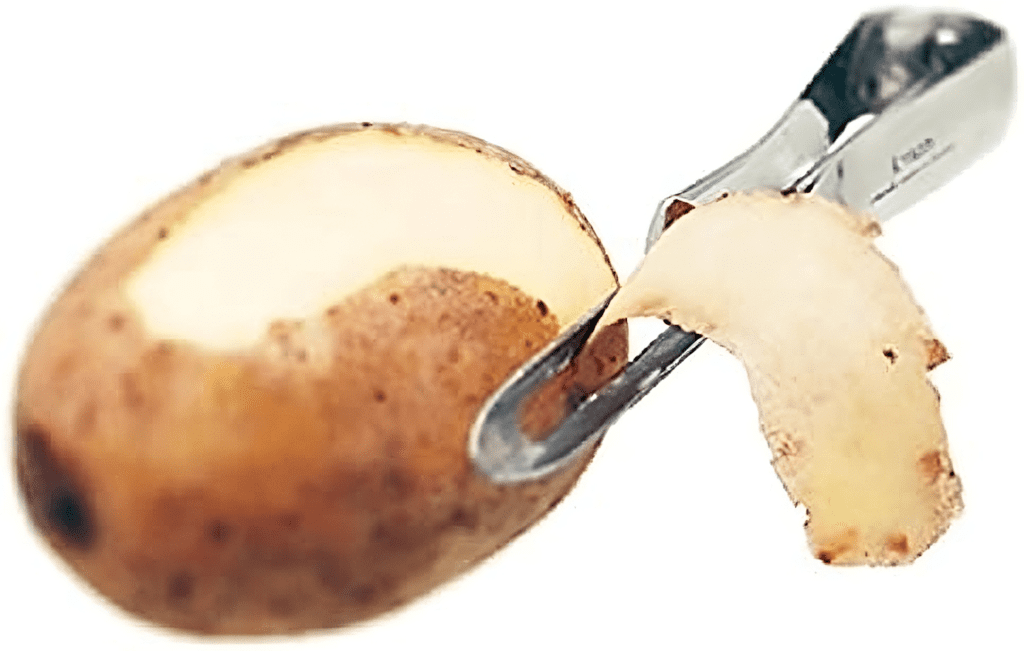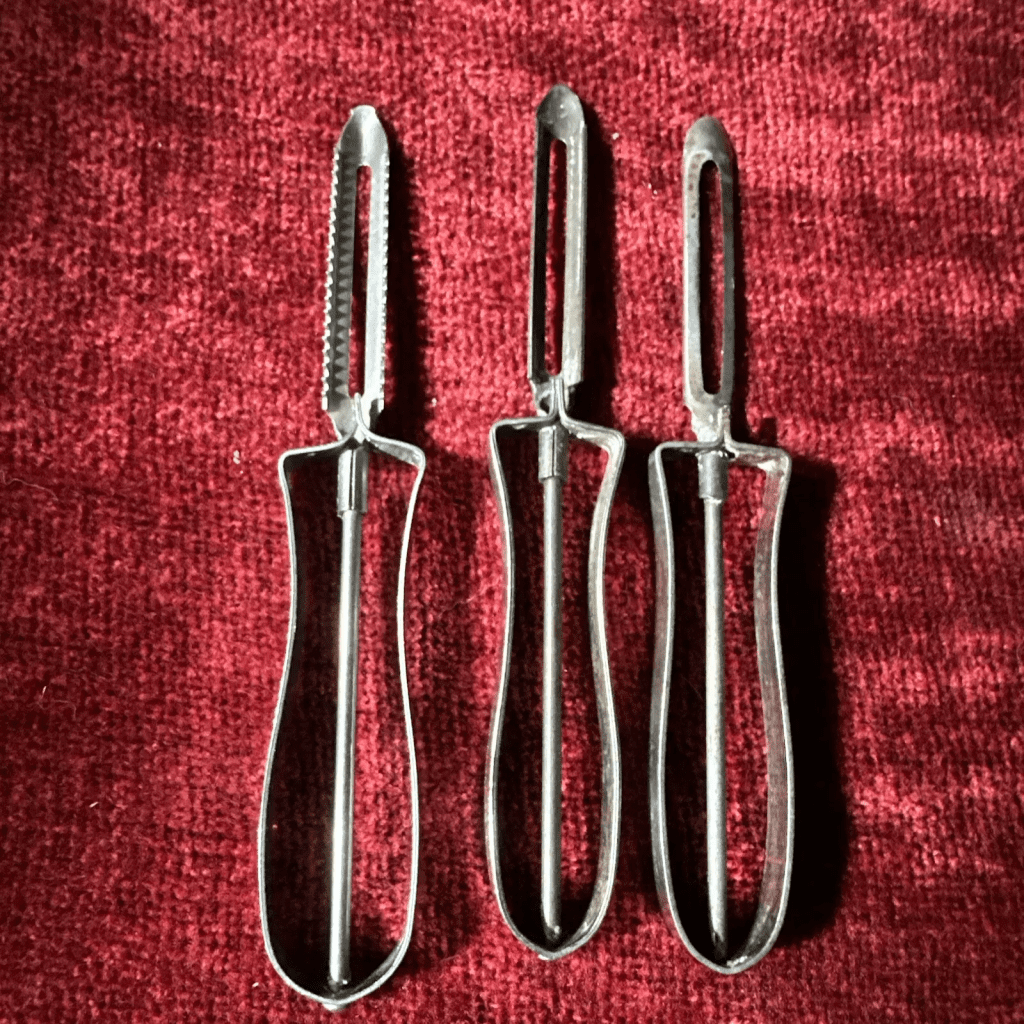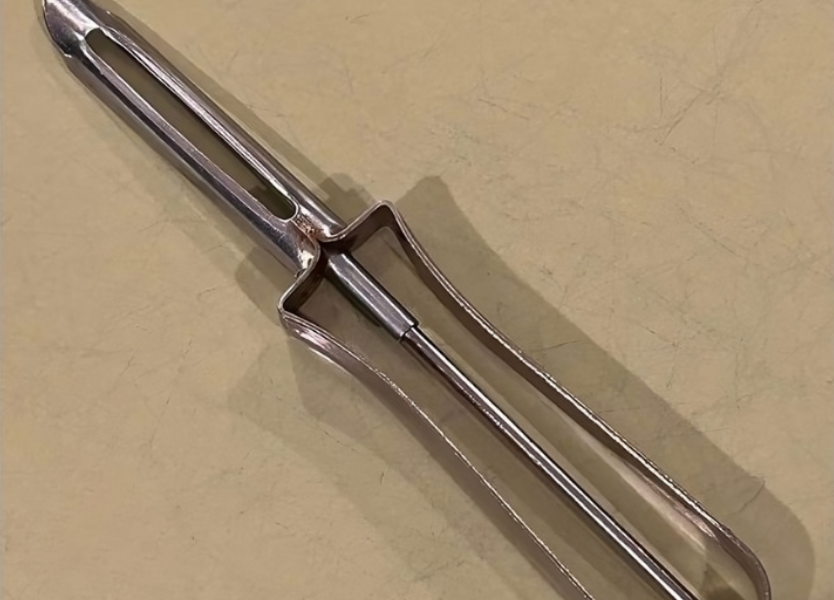The humble peeler has been a kitchen staple for over half a century, reliably making food preparation faster and easier. If you’ve ever sliced your way through a mountain of potatoes, or peeled countless apples for a pie, you’ll know exactly why this tool is a must-have. But what makes a simple peeler so durable, and why do some models remain unchanged for decades? Let’s dive into the world of peelers and explore why they’re still going strong after all these years.
What is a Peeler? An Essential Kitchen Tool

A peeler, also known as a vegetable scraper, is a basic yet indispensable kitchen tool. Consisting of a metal blade with a slot and a sharp edge, it’s designed to strip away the outer skin of various fruits and vegetables, like potatoes, carrots, apples, and pears. Many cooks use a peeler for faster and more efficient peeling, sparing themselves the hassle of a paring knife.
The beauty of a peeler lies in its simplicity. It has a slot with one side sharpened to carefully shave away the peel, while the other side prevents the blade from cutting too deep. Whether you’re cooking for a family dinner or prepping ingredients for a large gathering, a trusty peeler is always up for the task.
Types of Peelers: A Guide to the Different Designs
Peelers come in various shapes and styles, catering to different peeling techniques and preferences. While most handheld peelers can be categorized into straight or Y-type peelers, other specialized designs offer unique features for specific peeling needs. Let’s explore some of the popular types available today.
1. Straight Peelers: The Classic Choice
Straight peelers, which look somewhat like a knife, have their blades aligned parallel to the handle. They come in two main designs: fixed and pivoting blades.
- Fixed Blade Peeler: Popular in Lancashire and France, this design has a non-pivoting blade, making it highly stable. The Lancashire peeler often sports a round wooden handle wrapped in string, and the blade itself is single-edged. The Econome peeler, invented by Victor Pouzet in 1928, has a unique blade design with two slits for enhanced functionality.
- Pivoting Blade Peeler: This design allows the blade to swivel, adjusting to the angle of the vegetable as you peel. The Jonas peeler, a Swedish innovation from 1953, is an iconic example. It has a pivoting blade that’s both sharp and versatile, making peeling tasks quick and efficient. The Jonas peeler is well-known in the U.S. for its simplicity and effectiveness.
2. Y Peelers: The Speed Peeler
The Y peeler is named for its shape, with the blade positioned perpendicular to the handle. Resembling a safety razor, this design lets you peel by pulling the blade across the vegetable, similar to shaving.
- Zena Rex Peeler: One of the most iconic Y peelers is the Zena Rex, created by Alfred Neweczerzal in 1947. Known for its lightweight aluminum handle and carbon steel blade, it has become a staple in kitchens worldwide. This model also features an “eye gouger” next to the blade, perfect for digging out blemishes on potatoes.
Y peelers tend to be faster than straight peelers due to their ergonomic design, which lets you shave off skin in clean, quick strokes. They’re great for people who do a lot of peeling in a short amount of time and are easy to control.
3. Swivel Peelers: A Modern Marvel
Swivel peelers have blades that pivot or rotate, making them adaptable to the contours of the vegetable. They’re perfect for soft-skinned items, like tomatoes, as well as harder vegetables, such as squash. The blade adjusts as you peel, allowing for smooth, effortless strokes.
4. Specialty Peelers: Meeting Specific Needs

While the straight, Y, and swivel peelers cover most of the basics, several specialty peelers cater to unique tasks.
- Curved Blade Peelers: These are designed to follow the contours of round fruits and vegetables. They take wider bites, reducing the number of passes needed for a full peel.
- Mechanical Apple Peelers: These crank-operated tools are fantastic for peeling and coring apples in one swift motion. They’re ideal for people who frequently make applesauce, apple pies, or any recipe requiring lots of peeled apples. Some models, like the CrankMaster Peeler, are particularly helpful for those with arthritis, as they require minimal manual effort.
The Longevity of a Peeler: Why Old Models Still Shine
You may wonder why some peelers from the 1950s or even earlier still work so well today. The answer lies in their timeless design and durable materials. Peelers like the Jonas and the Zena Rex were designed with functionality and durability in mind. These tools were made to last, with robust handles and sharp blades that can stand up to years of use.
Another reason for their longevity is the fact that peeler technology hasn’t changed much over the years. While some newer models have added features like ergonomic grips or rust-resistant blades, the basic design remains unchanged.
Choosing the Right Peeler for Your Kitchen

Selecting the right peeler depends on your personal preferences and the types of fruits and vegetables you typically peel. Here are a few tips for picking the best one:
- Consider the Peeling Angle: Y peelers work well if you prefer a pulling motion, while straight peelers offer a more knife-like feel.
- Material Matters: Look for peelers with stainless steel or carbon steel blades for sharpness and durability.
- Ergonomic Handles: If you do a lot of peeling, opt for a peeler with a comfortable, non-slip handle.
- Special Features: If you need to remove blemishes from vegetables, choose a peeler with an eye gouger.
Conclusion: The Peeler’s Lasting Legacy
In a world of high-tech kitchen gadgets and automated devices, the humble peeler has remained steadfastly low-tech yet incredibly effective. Whether you’re reaching for an iconic Jonas or a classic Zena Rex, these peelers prove that sometimes, the simplest tools are the ones that work best. So next time you peel a potato or an apple, take a moment to appreciate this tool’s 50-year legacy. After all, when a tool has lasted this long, you know it’s something special.
A peeler may be small, but its impact is big, allowing generations of home cooks to peel with precision and ease. Whether you’re preparing a family meal or a festive feast, a reliable peeler will always have a place in your kitchen. So, do you know what it’s called? A peeler – 50 years old and still working great!


